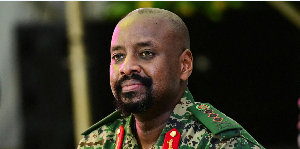In the last few weeks, the Ghanaian media have been dominated by what is derisively dubbed “Woyomegate”. This is a case where a Ghanaian business man, Alfred Agbeshi Woyome, is alleged to have defrauded the government of Ghana of some 51 million Cedis by fraudulently obtaining a judgment debt. Mr. Woyome has already been charged with the offence. Some of his alleged accomplices are in police custody. Meanwhile, the relevant Ghanaian security agencies are continuing their investigations. Hopefully, in the end they will tell Ghanaians which individual officials in the Mills’ or Kufour’s government knew about the scam, when they knew it, and what actions, if any, they took to stop it. Of course, those who are found to have committed criminal offences will be tried and, if found guilty, punished according to our laws.
Jailing Woyome and others, and possible restitution of the money to the State, should not, however, be the end of the matter. There has to be a public post mortem, diagnosis and consequences. In my view, “Woyomegate” raises fundamental questions that far transcend corruption by individuals. It trains the spotlight on our very system of government. It calls into question the existing balance of powers between the three arms of government: the executive, the legislature and the judiciary, particularly the first two. It is hardly within the province of the security agencies investigating the case in the end to advise us as regards any corrective measures we might need to put in place in order to forestall similar scams happening in future. That is a question that must pre-occupy us as a nation from now on.
The purpose of this piece, therefore, is to argue that “Woyomegate” is a wake-up call for Ghanaians to take another and more serious look at our present system of government and to underline support for the following changes as a sine non qua for ensuring a proper balance of powers within our governmentstructure: (a) reverting to a ceremonial president and an executive prime minister, who should also be an elected member of parliament; (b) decoupling the Attorney-General’s office (A-G) from the portfolio of Minister of Justice and insulating the former from any political interference; and, (c) strengthening the operation in practice of Article 35(7) of our 1992 Constitution. I should, perhaps, state explicitly that those “proposals” are not novel or original. They have been debated by Ghanaians for a long time now. What is new, however, is my attempt to “reargue” support for those old issues in the new context of “Woyomegate”.
It is a sad commentary on our political immaturity that to-date we have made no public attempts to try and understand “Woyomegate” in its wider government structure context, i.e., how we govern ourselves as a nation. Maybe because some of these things happen so often that we have become blasé about them. In the face of our impotence to change the way our politicians run our country, we dismiss these scandals with a shrug of the shoulder. Both our main political parties, NDC and NPP, for their part, are having a field day over the case. Although it is an embarrassment to NDC, especially in an election year, both parties have obligingly turned “Woyomegate” into an opportunistic political football. They are playing it hard and foul, with the hope of reaping some electoral windfall in the forth coming December 2012 elections when they should be leading the way to engage Ghanaians in a sober and contrite reflection on the import of the scandal for Ghana and how such incidents might be avoided in future. They are not thinking beyond December 2012. Their utterances suggest thinking that there are no lessons to be learnt from this case. But, surely, there must be!
I must confess that I am not a constitutional lawyer and I anticipate my reading of our Constitution to be challenged by the experts. I look forward to reading their “rejoinders” with some trepidation. Although I do not discount the human factor altogether, I would still argue that our present system of government, as laid down in our Constitution, largely made “Woyomegate” possible.
First, the fault line in our present government system laid bare by the scandal is the “unbalance” of powers between the executive (president) and the legislature (parliament). Our Constitution “ordains” that Ghana shall have a president who shall be both the “Head of State and Head of Government” (Articles 57). It then goes on to state that the “executive authority of Ghana shall vest in the President”, and to be “exercised in accordance with the provisions of this Constitution (Article 58(1)). The powers of the president are laid down in several Articles, too numerous to cite here (Article 70 et seq.). The Constitution pays lip service to the doctrine of separation of powers, in that it excludes the president from the legislature but shies away from imposing meaningful checks on the exercise of those powers vis-à-vis Parliament. Granted a few provisions impose some limitation, for example, Article 78(1)) states that “Ministers of State shall be appointed by the President with the approval of Parliament.” This is minor. As far as I can judge, the Constitution contains no provisions at all on which Parliament could rely to compel a sitting president to come to the House and answer questions from MPs who after all represent us, the People. (The fact that the vast majority of our MPs have proved themselves to be a total washout is not the issue here.) The only instance where the Constitution requires a president to appear before Parliament is ceremonially to deliver a State of the Nation Address (Article 67), and leave. After the ceremony, our MPs motivated by self-interest timorously and inconsequentially peck at the Address. That’s about it!
The thrust of my argument is that in terms of accountability a president is not responsible to Parliament. Parliament virtually has no oversight control over how a president exercises the enormous powers of the office. I remember a report in which a former very close adviser to ex-president Kufour was challenged in a private conversation regarding the questionable constitutionality of certain actions that the president took. She retorted curtly, with an air of how-dare-you: “The President can do anything”! This utterance is most revealing as to how omnipotent those who exercise presidential powers view themselves. If our Constitution had empowered Parliament to compel a sitting president to attend the House and publicly answer questions about government’s actions, or lack of them, he/she would feel responsible for how ministers and other public officials discharge their functions. The absence a responsibility and accountability mechanism is a major weakness in our system of government. To his credit, president Mills acted swiftly when the scam hit the headlines and ordered an immediate investigation. But his knee-jerk reaction was like shutting the stable door after the horse has bolted. My question, therefore, is: must we as a nation persist in a system of government that serves us so poorly?
In spite of the irony, I hope “Woyomegate” turns out to be a blessing in disguise. I believe it has major lessons for Ghana. But a lot depends on how we as a nation react to the scandal. I believe it presents us with a great opportunity which we must not spurn. We must seize it to reflect upon the scandal and use it to make bold and radical changes in our system of government for the common good. We must fashion a system that incorporates effective checks and balances within our government structure; a system that entrenches responsibility and accountability mechanisms; and, a system that is transparent enough to stop future “Woyomegates” in their tracks. To my mind, only a system that truly separates the functions of a head of state from those of an executive can ensure and entrench responsibility and accountability. In other words, I contend that our salvation for a better accountable government lies in reverting to a ceremonial president and an executive prime minister, who should be head of government and also a member of parliament. As a member, a prime minister would attend Parliament and could be forced to answer questions from MPs on the floor of the House on any aspect of his/her government’s actions or inactions. Can one imagine president Atta Mills going to Parliament to be quizzed by our elected representatives about “Woyomegate”? That would be the day! Even our dead would rise from their graves, no doubt prematurely, to celebrate the dawn of a true democracy in Ghana!! Not a chance in hell!!!
The second fault line in our government structure thrown into bold relief by “Woyomegate” is the combined portfolio of Minister of Justice and A-G. We will not know its full extent until the case goes to court but it appears that there has been some positive political interference in the case at the Minister of Justice and A-G level, especially when one considers that Mr. Woyome reportedly is a generous NDC financier. Our Constitution made that intrusion possible.
Article 88 first defines the functions of the A-G as the principal legal adviser to the Government and is responsible for the initiation and conduct of all prosecutions of criminal offences and the institution and conduct of all civil cases of the State and all civil proceedings against the State. Unfortunately, however, our Constitution unwittingly “politicises” the A-G’s functions, by stipulating unambiguously that the A-G “shall be a Minister of State,” which elevates the incumbent to the Cabinet and is bound by Cabinet collective decision. Although there are no constitutional provisions specifically regulating the matter, by practice successive governments have combined the portfolio of Minister of Justice and A-G. This practice subverts the independence that an A-G requires to take actions based on legal considerations alone.
In my view, “Woyomegate” presents a compelling case for decoupling the office of the A-G from the portfolio of Minister of Justice. The A-G’s office, including that of the Director of Public Prosecutions and the Solicitor-General, should become a public office and insulated from political interference the same way as the offices of the Electoral Commissioner and the Auditor-General. Regarding these two public offices, the Constitution provides (Article 46 and Article 187, respectively) that in performing their functions they “shall not be subject to the direction or control of any other person or authority.” These provisions vest those offices with a large measure of independence or autonomy. My sense tells me that if only we had a “non-political” A-G the legal advice given by the legal officers in the office of the Minister of Justice and the Minister of Finance would have been scrutinized much more closely than appears to be the case, and “Woyomegate” would have been prevented, and scarce public funds saved.
The Mills-appointed Constitutional Review Commission must have received several submissions, proposing in one form or another, the suggestions I “rehashed” above. We are waiting the publication of their recommendations on those and other submissions. This should not, however, preclude us from continuing the debate on these vitally important national issues.
The third, and final, fault line exposed by “Woyomegate” is the virtual disdain with which successive governments have operated the sensible provisions contained in Article 35(7) of our Constitution. That clause reads as follows: “As far as practicable, a government shall continue and execute projects and programmes commenced by the previous Governments.” (The lack of adherence by successive governments to those provisions formed the basis of a piece I posted late December 2010 on the Ghanaweb in which I advocated a national development plan as opposed to individual party manifestoes.) Probably in genuflexion to Article 35(7) a practice or convention has evolved whereby an incoming government’s team of experts and their counterparts from the outgoing government hold a series of handover meetings.
I have never attended any such meetings. Nor have I ever been privileged to know or talk to the “big men” who attended them. But it seems to me that the stadia rehabilitation project, which is at the centre of the “Woyomegate,” would have been listed, discussed and all documents or records on the case made available to the incoming government team, more so when the project involved large sums of public money and was beset with contractual disputes between the Kufour government and Waterville. Even if this particular project was deemed too “small” for those elevated handover meetings, why didn’t the Mills government contact the concerned officials in the Kufour government for guidance or briefing in the spirit, if not the letter, of Article 35(7)? The former Chief of Staff and Minister of Presidential Affairs in the Kufour government, Mr. Kwadwo Mpiani, very rightly raised this troubling question in one of his recent comments. We need answers to his query.
In conclusion, “Woyomegate” has done Ghana immense favour. This scandal is not merely about corruption by individuals. It is about our government structure weaknesses. It has exposed fault lines in our present system of government. Our executive presidential system lacks a necessary counter-weight or oversight in Parliament. It lacks effective mechanisms for responsibility and accountability to Parliament, which represents the People. “Woyomegate” also shows that it is the height of foolishness to combine portfolios of Minister of Justice and A-G in one person. It behoves us as a nation to turn “Woyomegate” into a positive force for change of our government system along the lines “reargued”, which alone can nourish and sustain our fledgling democracy and good governance.
Cedric Tsuo
Opinions of Friday, 2 March 2012
Columnist: Tsuo, Cedric














